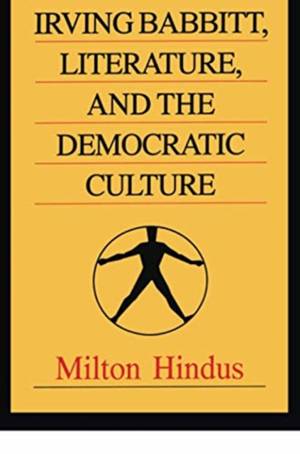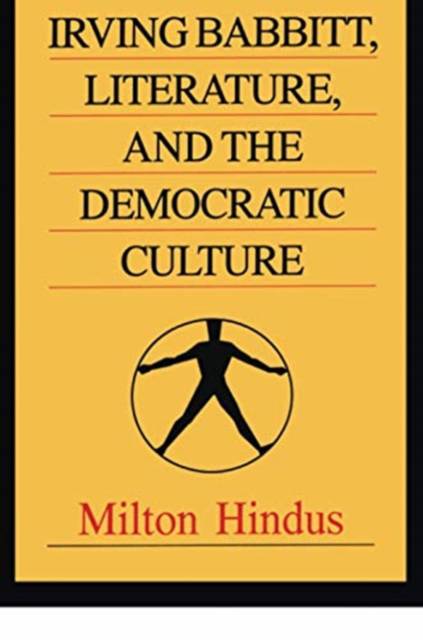
- Retrait gratuit dans votre magasin Club
- 7.000.000 titres dans notre catalogue
- Payer en toute sécurité
- Toujours un magasin près de chez vous
- Retrait gratuit dans votre magasin Club
- 7.000.0000 titres dans notre catalogue
- Payer en toute sécurité
- Toujours un magasin près de chez vous
Irving Babbitt, Literature and the Democratic Culture
37,95 €
+ 75 points
Description
This is a sustained inquiry into the thought of the influential scholar and critic Irving Babbitt (1865-1933), intellectual leader of the movement known as the New Humanism. Milton Hindus considers the subjects that most interested Babbitt: ethics, literature, education, and social and political conservatism in the United States. In their most general sense, his concerns were man and his nature as the root of all social order. For Babbitt, efforts to improve social conditions must begin and end with the individual human being.In rejecting notions that society is primarily responsible for moral deficiencies in the individual, or that the individual is bom good only to be corrupted by society, Babbitt places responsibility squarely with the individual. As Hindus shows, Babbitt sees human beings as a mixture of good and evil impulses, shaped by what he called "the inner check." Virtue is thus a result of self-discipline, reinforced and confirmed by habit.Babbitt's thinking, emphasizing as it does proven values and accepted wisdom, calls upon us to advance ourselves by rediscovery of the lessons of the past. Hindus demonstrates that Babbitt has much to offer us as we consider contemporary social and political issues. In contrast to those who emphasize avant-garde postures and fashionable ideologies, as well as those conservative followers of outdated theories and dead-end formulas, Babbitt's reinvigorating spirit inspires new insights.Although there have been a number of studies of Irving Babbitt and the New Humanism, Hindus is singular in his combination of detailed consideration of a number of Babbitt's books with his own essays on contemporary issues, approached in what Hindus calls a Babbitian spirit. Like Babbitt's own writings, this book is addressed to the general reader. It will be of particular importance to teachers of comparative literature and those interested in the connections between literature and social thought and philosophy.
Spécifications
Parties prenantes
- Editeur:
Contenu
- Nombre de pages :
- 135
- Langue:
- Anglais
- Collection :
Caractéristiques
- EAN:
- 9781138511088
- Date de parution :
- 18-12-20
- Format:
- Livre broché
- Format numérique:
- Trade paperback (VS)
- Dimensions :
- 150 mm x 226 mm
- Poids :
- 235 g

Les avis
Nous publions uniquement les avis qui respectent les conditions requises. Consultez nos conditions pour les avis.





